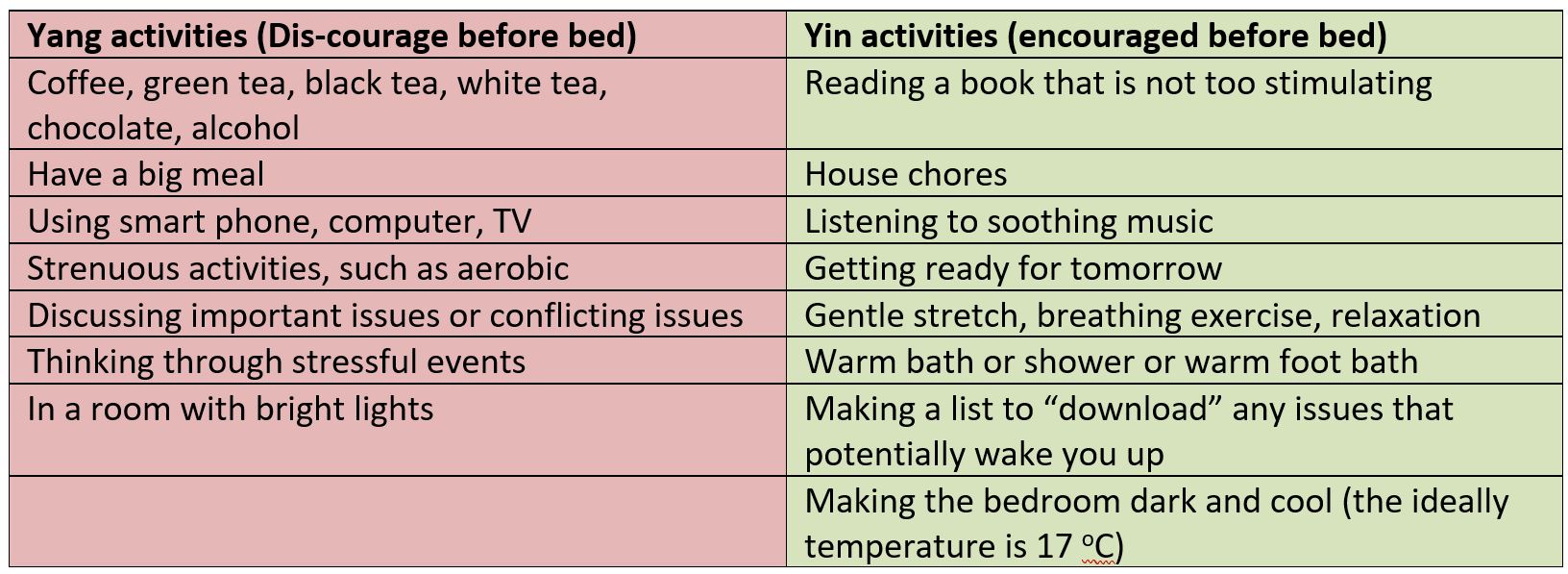Insomnia, Sleep and Sleep hygiene
Cannot fall sleep at night, frequent waking up, or waking up at 1 or 3 o’clock in the morning? You are not alone. Based on a 2019 Sleep Health Foundation report that at least one in two adult Australians experiences one of the above mentioned sleep problems three or more times per week; and one in six adults could be diagnosed to have chronic insomnia. Sleep problem occurs in all age groups, but is more common as we get older. Women are more likely to experience sleep disturbance than men.
Insomnia or sleep disturbance is one of the commonest symptoms we see at Geelong Chinese Medicine Clinic. Yet most people do not come for help with their sleep issue. People often come because of low energy, foggy brain, digestion issue, pain in the body, blocked nose, anxiety, skin problems or other issues. Sleep issue is only identified after our comprehensive inquiry. So sleep problem or insomnia is under diagnosed and consequently under-treated. Research shows prolonged poor sleep is linked to poor quality of life, depression, anxiety, chronic pain, diabetes, obesity, cardiovascular diseases, such as hypertension, heart attack, and stroke, and even dementia.
Luckily, no matter what causes sleep disturbance, there are something everyone of us could do. It is called sleep hygiene. It is effective. For some people, observing sleep hygiene is sufficient to improve their sleep, whereas others also need professional help. Please make sure you check out the link for excellent information.

Chinese medicine considers two important factors for a good sleep:
- One has to be calm throughout the day to be able to sleep well at night. That is why when people are stressed, they tend to sleep poorly. Learning how to maintain calm when we face challenges throughout the day at work, at home, or in the community is a skill we have continuously to learn and to perfect throughout our life. Everyone may have a different path.
- The process of fall asleep at night is a process of Yang (the excitatory part of the energy) entering into Yin (the sedative part of the energy). So anything activating Yang should be avoid and minimised. This principle may help you organise your daily before bed routine.
Below is a list of the common mistakes we see in our patients. Check if you have any of them.
- Drinking coffee, green tea, white tea, hot chocolate or alcohol in the evening. All those drinks are stimulant, and will keep most of the people awake. Alcohol may temporarily make you sleepy, but can make your sleep unsettled. Ideally, the least cup of coffee or tea should not be later than 2pm.
- Having a big meal in the evening. Due to work schedules, dinner is the biggest meal of the day for most of us. You can make dinner small, and have it early. Say at least 3 hours before bed.
- Using smartphone or computer or watching TV before bed. The blue light from those screens activates the brain more readily.
- Engaging in active activities, such as aerobic exercise.
Table: Some activities to be avoided or encouraged before bed.

